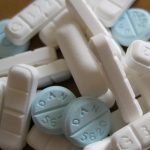Completing a codeine rehab program is a significant accomplishment, but the journey to recovery is far from over. For individuals who struggle with addiction, staying sober after rehab requires ongoing effort, commitment, and support. The transition from rehab to everyday life can be challenging, as individuals must navigate triggers and temptations that can lead to relapse. However, with the right mindset, strategies, and support, it is possible to maintain sobriety and achieve long-term success in recovery.
In this article, we will discuss some tips for staying sober after codeine rehab, including attending aftercare programs, building a support network, developing a self-care routine, avoiding triggers, and setting realistic goals. The following approaches can help one stay sober after codeine rehab:
Build a Support Network: Surrounding yourself with a supportive and understanding network can help you stay sober after codeine rehab. Consider joining a sober community or attending support groups like Narcotics Anonymous (NA) to connect with others in recovery and build a support system.
Develop a Self-Care Routine: Developing a self-care routine can help you manage stress, anxiety, and other triggers that can lead to relapse. Prioritize activities that promote physical and mental well-being, such as exercise, mindfulness, meditation, and healthy eating.
Avoid Triggers: Identify triggers that can lead to relapse and avoid them as much as possible. This may include avoiding people, places, or situations associated with codeine use and managing stressors that can lead to cravings.
Set Realistic Goals: Setting realistic goals can help you stay motivated and focused in recovery. Celebrate small victories along the way, and don’t be too hard on yourself if you experience setbacks. Recovery is a journey, and it takes time and effort.

Aftercare Programs
Aftercare programs can play a crucial role in helping individuals stay sober after codeine rehab. They offer approaches such as group therapy and individual counseling to provide ongoing support and guidance as you navigate life in recovery. These programs can help you stay accountable, build a sober support network, and develop healthy coping mechanisms to manage triggers and cravings.
Defining Aftercare
Aftercare refers to the ongoing support and treatment services individuals receive after completing a rehab program. Aftercare programs are designed to help individuals maintain their sobriety and prevent relapse by providing ongoing guidance, support, and resources. Aftercare programs can be delivered in various formats, including group therapy, individual counseling, peer support groups, and sober living arrangements.
Aftercare is an essential component of addiction treatment that helps individuals maintain their sobriety and prevent relapse after completing a codeine rehab program. Aftercare refers to the ongoing support and treatment services that individuals receive after leaving rehab. Aftercare can include individual counseling, group therapy, peer support groups, sober living arrangements, and medication-assisted treatment (MAT). So what happens during aftercare after completing codeine rehab?
Individual Counseling
Individual counseling is a form of aftercare that provides one-on-one support for individuals in recovery. During individual counseling sessions, individuals work with a trained therapist to address any underlying mental health conditions that may contribute to their addiction. Counselors can help individuals develop healthy coping mechanisms to manage triggers and cravings, build a sober support network, and prevent relapse. Individual counseling can also help individuals set goals for their recovery, work through any challenges or setbacks, and develop a relapse prevention plan.
Group Therapy
Group therapy is another form of aftercare that provides a supportive environment for individuals in recovery. During group therapy sessions, individuals connect with others in recovery and work together to address common addiction-related challenges and issues. Group therapy sessions can be facilitated by a trained therapist or led by peers in recovery. Group therapy sessions can focus on relapse prevention, mindfulness-based therapy, cognitive-behavioral therapy (CBT), and other evidence-based treatments.
Peer Support Groups
Peer support groups like Narcotics Anonymous (NA) and Alcoholics Anonymous (AA) provide a safe space for individuals to share their experiences, gain support, and learn from others in recovery. Peer support groups typically follow a 12-step program that involves admitting powerlessness over addiction, seeking a higher power, and making amends. Peer support groups can provide a sense of community and belonging for individuals in recovery and can help individuals build a sober support network.

Sober Living Arrangements
Sober living arrangements provide a structured and supportive living environment for individuals in recovery. Sober living arrangements typically require individuals to abstain from drugs and alcohol and follow a set of rules and guidelines. Sober living arrangements provide a safe and supportive environment for individuals to practice their newfound sobriety skills and build a sober support network. They can also provide access to peer support groups, individual counseling, and other aftercare services.
Medication-Assisted Treatment (MAT)
Medication-assisted treatment (MAT) can be used to manage withdrawal symptoms and prevent relapse. MAT typically involves the use of medication along with therapy and other support services. Medications used in MAT for codeine addiction include buprenorphine, naltrexone, and methadone. MAT can help individuals manage cravings and withdrawal symptoms and prevent relapse.
Why is Aftercare Important for Staying Sober After Codeine Rehab?
- Ongoing Support: Aftercare programs provide ongoing support for individuals in recovery. Recovery is a lifelong journey, and aftercare programs can help individuals navigate the ups and downs of life after rehab. Aftercare programs can help individuals stay accountable, build a sober support network, and develop healthy coping mechanisms to manage triggers and cravings by providing a safe and supportive environment.
- Relapse Prevention: Aftercare programs can help prevent relapse by providing individuals with the tools and resources they need to manage triggers and cravings. Relapse prevention strategies include cognitive-behavioral therapy (CBT), mindfulness-based therapy, and medication-assisted treatment (MAT). Aftercare programs can also provide education on the signs of relapse and how to avoid common relapse triggers.
- Continued Therapy: Continuing therapy after rehab can help individuals address any underlying mental health conditions that may contribute to their addiction. Aftercare programs can provide access to individual counseling, group therapy, and other evidence-based treatments to help individuals manage depression, anxiety, PTSD, and other co-occurring disorders.
- Sober Support Network: Building a sober support network is crucial for individuals in recovery. Aftercare programs can provide opportunities to connect with others in recovery and build a supportive community. Peer support groups like Narcotics Anonymous (NA) can offer a safe space for individuals to share their experiences, gain support, and learn from others in recovery.
In conclusion, staying sober after codeine rehab requires ongoing effort, commitment, and support. By attending aftercare programs, building a support network, developing a self-care routine, avoiding triggers, and setting realistic goals, individuals can maintain their sobriety and live a healthier, more fulfilling life in recovery.













